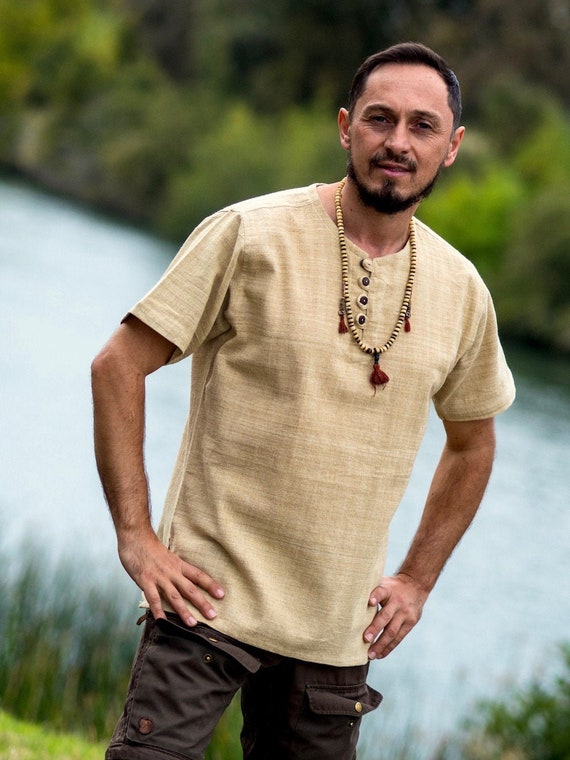New Advice To Deciding On Bamboo Clothes
Wiki Article
What Are The Advantages Of Hemp Clothing Made From Low-Impact Fibres? Clothing For The Environmental Impact?
Low impact hemp clothing is more environmentally friendly than clothes made from synthetic fibers. Hemp clothing offers a number of key environmental advantages. It is fast growing and requires minimal water, pesticides, or herbicides compared to many other crops. Hemp can adapt to different soils and thrive in a variety of climates.
Hemp is less water-intensive than cotton. Cotton is notorious for its excessive use of water. Hemp clothing is more efficient in terms of water use because of this.
No Pesticides and Herbicides- Hemp can be cultivated without the need for synthetic pesticides or herbicides in many instances, which reduces the environmental impacts of chemical agriculture.
Soil Health Hemp cultivation can boost soil health because of the deep roots system, which prevents soil erosion and compaction. It also leaves the soil in better condition for the future growth of cropping.
Biodegradability - Hemp fibers are biodegradable and disintegrate in a natural manner over time, decreasing the environmental burden of waste textiles. Synthetic fibers like polyurethane can take many years to decompose.
Lower Carbon Footprint: Hemp fibers are produced with lower carbon footprint that synthetic materials. Hemp can also act as a sink for carbon dioxide by absorbing carbon dioxide from the air during its growing process.
Durability Hemp clothing is known for its durability and longevity. High-quality garments made from hemp will last for a long time. This means you will not need to replace them as often and reduce waste.
Hemp plants are naturally pest resistance, which reduces the need for chemical pest control.
Versatility- Hemp is a great material for various textile applications that include bags, clothing and accessories, making it a versatile and sustainable choice for clothing and textiles.
Regenerative Agriculture. Certain sustainable farming methods incorporate hemp into Regenerative farming practices which seek to improving and restoring ecosystems while producing crops. This practice can have positive environmental impacts.
The dyeing process, transport, and consumer behaviours all have an impact on the overall sustainability. Additionally, as with any industry, there can be a variety of production methods and standards. It's recommended to seek out certified hemp clothing that is organic or sustainable alternatives to get the best environmental benefits. Have a look at the recommended how you can help about hemp clothing for more info including hemp and cotton fabric, hemp polo shirts, hemp underwear, hemp coat, hemp button shirt, 100 hemp shirt, hemp shorts, hemp t shirt mens, mens hemp t shirts, hemp boxer shorts and more.

How Is Hemp Clothing Better In Terms Of Function And Design Than Traditional Fibres.
Hemp clothing has many functional and technical advantages over conventional fibers, while being environmentally sustainable. Here are some ways that hemp clothing stands in a way as an eco-friendly and high-performance choice that can help with moisture wicking and breathability.
Hemp fibres are highly air-tight. They also wick away moisture, making hemp clothing very comfortable in all conditions. They are able to help remove water, which keeps the wearer cool and dry in the hot summer months.
Temperature Regulation-
Hemp clothing exhibits excellent thermoregulatory properties. It will keep your body warm in cold temperatures by capturing heat near to your body. It also helps keep you cool during hot conditions by allowing heat as well as water to go away. The natural thermoregulation process can decrease the frequency of changing clothes.
Durability and longevity-
Hemp fibers are well-known for their toughness. Hemp clothing tends to be more robust and resistant to wear and durable than some traditional fibers. This means that hemp garments are more durable and last for longer. They can also decrease the amount of times you'll need to replace them, which has a negative impact on the environmental.
UV Protection
Hemp fibers provide natural UV protection, protecting the skin from damaging UV radiation. This feature is especially beneficial for outdoor activities.
Biodegradability:
Hemp clothes are biodegradable. It degrades in a natural way in time. This feature helps in reducing the environmental impact of textile trash. Synthetic fibers are able to be left in landfills for extended periods.
Low Environmental Impact
Hemp cultivation typically requires fewer synthetic pesticides and herbicides compared to conventional cotton. It is also environmentally friendly because it uses less. Hemp farming organically improves the green features.
Carbon Sequestration
Hemp can be used to capture CO2 from the atmospheric air. This is why hemp is able to be used as a carbon sink to aid in reducing greenhouse gas emissions.
Sustainable Crop Rotation and Sustainability-
Hemp can be integrated into crop rotations to enhance soil health, reduce the risk of disease and soil depletion. The environmental benefits of hemp are enhanced through this sustainable farming technique.
Versatility:
For the creation of blends of fabrics that are eco-friendly and high-performance hemp fibers can be combined with other materials such as organic cotton and recycled Polyester. This versatility allows for the creation of novel and sustainable textiles.
Low Toxicity-
Hemp fibers are naturally low in toxicity. They do not require a lot of chemical processing during production, which reduces the environmental impact of production of textiles.
It is important to remember that although hemp offers many eco-friendly and functional advantages however, the sustainability of clothing also depends on other factors such as dyeing processes as well as transportation and ethical methods of labor. To make eco-friendly choices, customers can search for clothing brands that emphasize sustainability, transparency ethical manufacturing practices, and hemp or other sustainable fibers. Follow the top rated hemp clothing advice for site tips including hemp dress, hemp shorts mens, women's all seasons hemp canvas bomber hoody jacket, jungmaven clothing, hemp fabric by the yard, organic hemp underwear, organic hemp underwear, patagonia hemp island pants, hemp denim, hemp shirts mens and more.

Bamboo Clothing Is Sustainable And Incredibly Comfortable.
Bamboo clothing is a great choice for comfort as well as the environment.
Softness- Bamboo is renowned for its incredibly soft. It is silky smooth texture which feels good against the skin. Bamboo clothing is luxuriously smooth, which is why it is a preferred choice for intimate apparel.
Breathability Bamboo fibers naturally breathe and help to wick away moisture. Air can circulate through the gaps and keep you cool even during hot temperatures. Moisture-wicking fabric helps draw sweat away off your skin, and also reduce the feeling of dampness.
Thermoregulation- Bamboo clothes have great thermoregulatory qualities. It helps keep you warm in colder temperatures by trapping heat close to your body. In hot temperatures, it can help you stay cool by allowing moisture and heat to evaporate. Bamboo is able to adapt to a range of temperatures, it's ideal for all seasons.
Hypoallergenic bamboo fabric is hypoallergenic, and gentle for sensitive skin. Bamboo is less prone to cause irritation or allergic reactions.
Bamboo fibers are naturally antimicrobial and can stop the growth of bacteria which cause smell. This makes bamboo clothing staying fresh even when worn in the midst of physical exercise.
Environment-
Sustainability- Bamboo can be a renewable and sustainable resource. It is one among the fastest growing plants and requires very little water. No pesticides, herbicides, or any other chemical are required to cultivate it. Bamboo can be harvested and not kill the plant because it is able to regenerate by regenerating its roots.
Bamboo is water efficient due to nature. Bamboo can be grown with minimal irrigation, and is typically grown with rainwater only. This reduces the environmental impact of water usage in agriculture.
Biodegradability. Bamboo clothes are biodegradable. They naturally decompose with time. This property reduces the accumulation of non-biodegradable textile waste in landfills.
Carbon Sequestration- Bamboo plants are able to capture carbon dioxide (CO2) from the atmosphere during their fast expansion. Bamboo cultivation can be a carbon sink which can aid in reducing climate changes by reducing greenhouse gases.
Chemical Reduction Bamboo fabric is manufactured with fewer chemical treatments than other types of textiles. This minimizes the environmental impact of textile manufacturing.
Closed-Loop Process- Certain bamboo fabric processes are closed loop which recycles water as well as chemical waste and reduces the amount of waste and pollution.
The environmental impact of bamboo clothing is according to how they're constructed and if the bamboo comes made from trees that are sustainably and responsibly managed. The best bamboo clothing for consumers is clothing made with eco-friendly ethical practices in order to reap the greatest environmental benefits. Check out the top click this link on bamboo clothes for blog advice including bamboo clothing, bamboo yoga leggings, bamboo pants ladies, bamboo sweatshirt, bamboo clothing for women, men bamboo boxer shorts, bamboo clothing for women, women's freefly apparel, women's freefly apparel, bamboo shorts mens and more.
